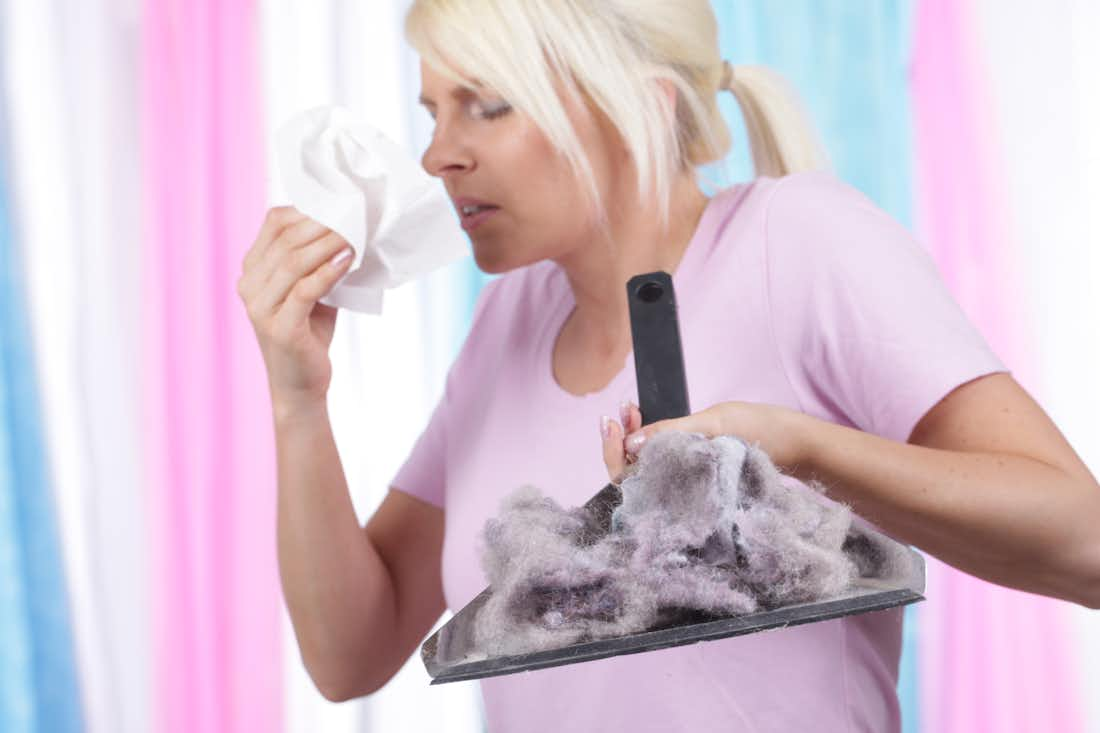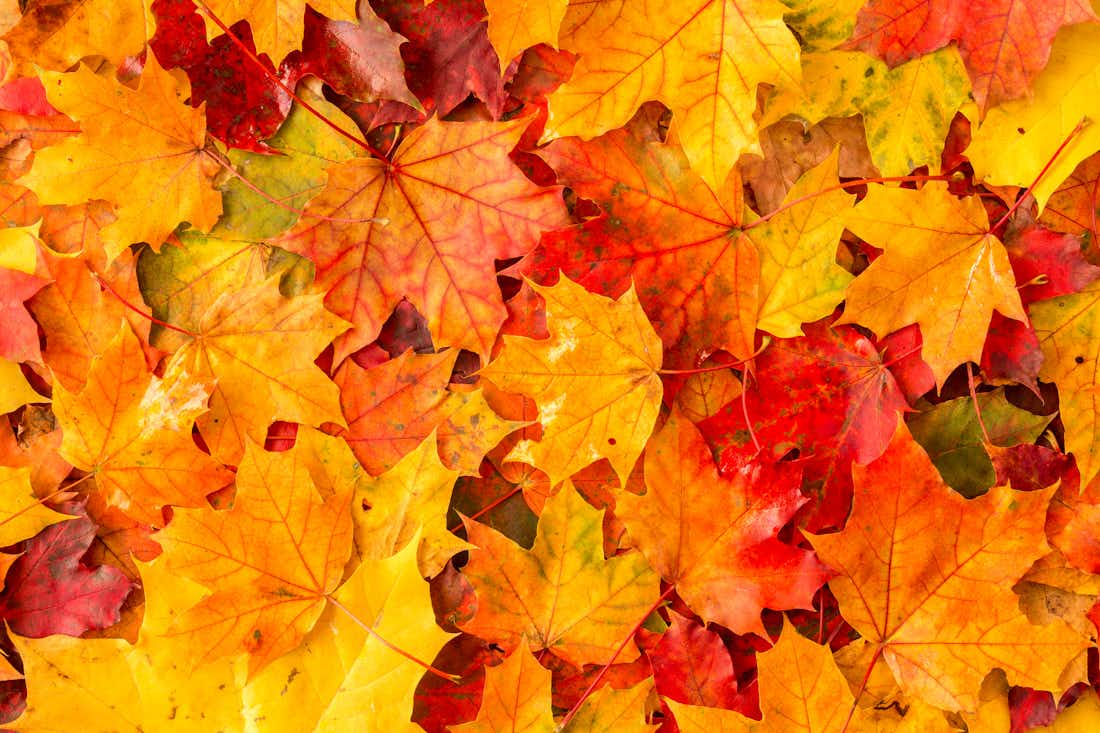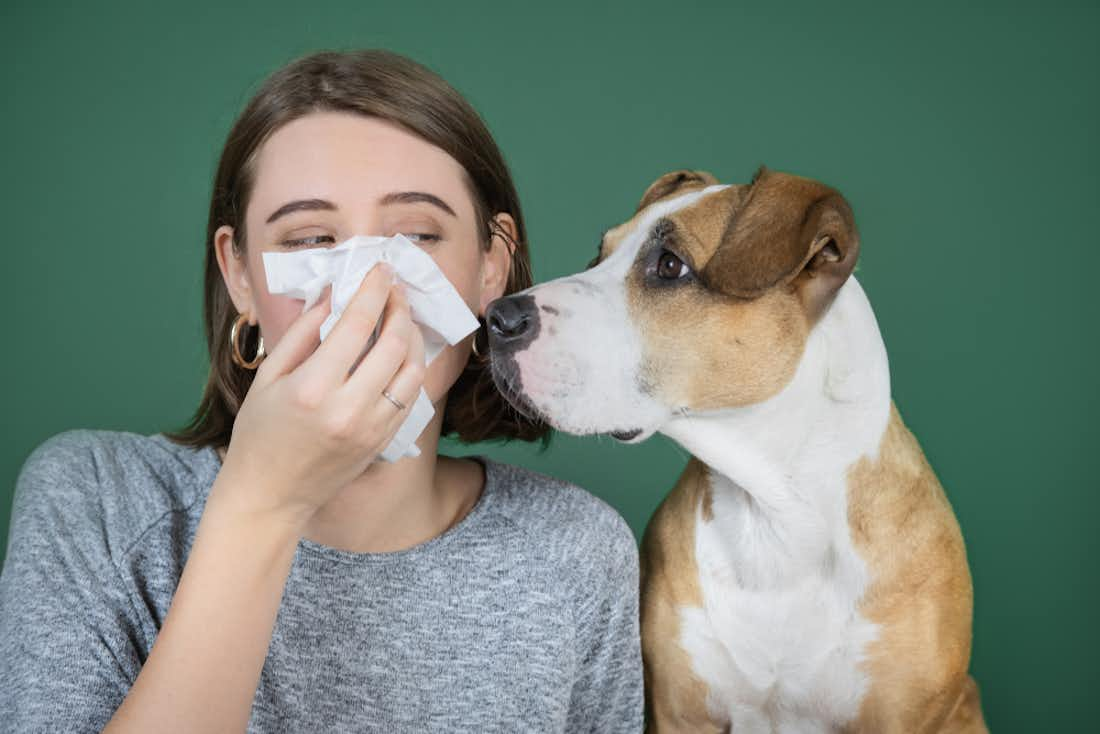May 6, 2022
Why Does Grass Make You Itch?
6 minute read
You’ve probably seen cartoon characters using blades of grass to tickle someone’s nose. And while that will undoubtedly make your body itch, you don’t need to come into physical contact with a blade of grass to feel its effects.
Grass pollen allergies are among some of the most common types of allergies in the United States. And among the many inundating symptoms, itchy throat, itchy eyes, and itchy skin are some of the most frustrating.
Let’s take a look at why grass can cause these inundating symptoms and how you can finally find the relief you need.
Understanding Grass Allergies
Your immune system is like a shield for your body. When a harmful foreign substance like a virus or a bacteria enters your body, your immune system enacts a number of defensive and offensive measures to try to get it out. That includes sneezing, coughing, watery eyes, and swelling.
While this is great when the substance is actually harmful, it can be frustrating when the foreign particles are nothing more than grass pollen or dust mites. When your immune system perceives a harmless substance as harmful, it can lead to an allergic reaction.
In the case of grass allergies, immunoglobulin E (IgE) antibodies in the blood may react to the proteins in grass pollen (the yellow, powdery substance that allows plants to reproduce). People with a higher number of these antibodies in their bloodstream are more likely to have an allergic reaction.
These antibodies trigger the release of a ton of different chemicals to fight off the foreign pollen invader, including histamine, which is responsible for causing a number of the symptoms we associate with allergies. This includes a runny nose, coughing, and of course: itchy, watery eyes.
Why Does Grass Cause Itchiness?
While grass allergies can make your throat and eyes itch like crazy, physical contact with a blade of grass can also make you feel itchy. Why exactly does that happen? Is it just a normal type of tickle, or is there another reason?
The thin, frail nature of a blade of grass is perfect for making you feel itchy and uncomfortable. If you’ve ever laid down in the grass on a warm day, you’ve probably felt the grass beneath you itch your skin all over. That’s because grass causes microscopic scratches on your skin. When sweat on your body, which contains salt, comes into contact with those scratches, it can lead to irritation and discomfort.
Additionally, if you look at a blade of grass under a microscope, you’d notice that it has tiny feather-like hairs all over its surface. Those little fibers can cause the sensation of itching, similar to an actual feather. Sometimes, those hairs might even secrete a drop of fluid, which only serves to amplify the itching sensation.
Finally, your skin might become itchy and covered in hives from exposure to grass. While this is much less common than other symptoms, some individuals experience rashes from inhaling grass pollen, or from touching grass directly.
How Can I Relieve Itching Caused By Grass?
If grass, or any other trigger, is causing your skin to itch, there are few home remedies you can try to bring about relief.
Use a Cold Compress
One of the best and easiest ways to relieve itchy skin is by using a cold compress on the affected area. You can do this for about 10 minutes at a time or until the itch subsides. You can even do this if you have a rash or hives, as it can help bring down swelling at the same time.
Apply Topical Creams or Ointments
Anti-itch creams contain active ingredients that can help block the effects of histamine, which is that frustrating chemical responsible for many of the symptoms of allergies. When applied to the skin, these topicals can relieve symptoms such as dry skin, itching, or discomfort.
Be sure to read the labels on these topicals carefully before using them. Some of them should not be used on open wounds or areas of broken skin, so take care to avoid any cuts or scratches.
Moisturize
Sometimes, your skin might be extra sensitive to itchiness and irritation because it’s dry. You can help to lubricate your skin’s surface by using moisturizer. Just make sure you use the right type for your skin.
If you have oily skin, you want to use a water-based moisturizer to help prevent breakouts and acne. On the other hand, if you tend to have a drier skin type, you will want to use an oil-based one to replenish natural oils on your skin.
Is It Bad To Scratch Itchiness From Grass?
There are a few tips listed above for things you _should _do to eliminate itchy feelings on your skin, but let’s talk about one thing you should try not to do whenever you can: scratch. Physically scratching an itch might feel satisfying, but it can do more harm than good.
The reflex to itch is an evolutionary response that animals developed to remove parasites from the skin. That’s why even slight movements or pieces of hair on your skin can trigger the need to scratch an itch.
It’s largely a mental game. The feeling of itchiness is mostly psychological – that’s why the feeling tends to go away if you ignore it for long enough.
For one, it can further irritate your skin because of the abrasive nature of the action. It might lead to cuts and scrapes in the problem area, especially if you scratch too much.
Furthermore, if you scratch enough to leave an open wound, you leave yourself at risk for infection. This is especially true considering that the undersides of your fingernails might be littered with dirt and debris, which can easily infect a wound if scratched.
Try gently patting it instead if you really feel like you need to scratch at an itch. Or, you can use the tips of your knuckles to apply a little bit of pressure and rub the area. However, it’s best to just let the feeling subside on its own.
How Can I Treat Grass Allergies?
While treating the itchy sensations with creams, lotions, moisturizers, or cold compresses is helpful for alleviating symptoms, let’s face it — it would be great if you just never had to worry about the feeling in the first place.
Treating your allergies directly can be a great way to do just that.
Antihistamines
Since itchy feelings are caused by the chemical histamine, taking a medication that blocks its effects makes a lot of sense.
Antihistamines do just that, and there are a few different ways you can take them.
Oral antihistamines are most common, and these are taken by mouth. They provide general, whole-body relief, making them perfect for those who are affected by seasonal allergies or indoor allergies and are multi-symptomatic.
However, if itchy, watery eyes are the main symptom that you’re feeling, using eye drop antihistamines is probably the best move. These are placed directly into the eye, helping to reduce swelling of the blood vessels to enhance comfort and reduce that itchy feeling.
You can even get nasal spray antihistamines to help reduce nasal congestion. But why stop at just one? Our Prescription Power Pack has everything you’d ever need to attack your allergy pathways from every angle.
Allergy Immunotherapy
While antihistamines are a gift for allergy sufferers in more ways than one, they only serve to alleviate the symptoms: they won’t treat allergies at the source. This is where immunotherapy comes into play.
Allergy immunotherapy (AIT) is an FDA-approved method to treat allergies by physically increasing your body’s tolerance to allergy triggers. It works by gradually exposing your immune system to an allergen over an extended period of time, allowing it to become accustomed to it. After the end of treatment, the goal is that you become less affected by allergies in the first place.
Historically, allergy immunotherapy has required injections. But a relatively new form called sublingual immunotherapy (SLIT) uses dissolvable tablets that are placed under your tongue. It’s easy, painless, and effective.
Want to know if this revolutionary allergy treatment is right for you? Take your free allergy consultation with Cleared to get a personalized treatment plan, support from licensed allergists, and access to some of the lowest-priced allergy treatments on the market.
How Can I Prevent Grass Allergies?
You might also not need to worry about treating your grass allergies if you prevent them from happening in the first place. And while seasonal allergies can be some of the most difficult to avoid altogether, there are a few tips and tricks for keeping your symptoms at bay.
Check Pollen Counts
A pollen count is the measure of pollen density in the air. On days when the pollen count is high, you’ll be more likely to be affected by seasonal allergies and co-occurring symptoms.
Dry, windy days tend to be the most inundating for allergy sufferers because the tiny pollen particles can easily float through the air without any resistance. When pollen counts are high, you may want to try to spend more time indoors if possible. Also, keep your windows closed on similar days.
Cover Up
Airborne allergy triggers like pollen can enter your body through the mouth, nose, or eyes. So, you can reduce the symptoms by covering these areas when you go outside. Consider wearing a face covering, sunglasses, and a hat to reduce your body’s exposure to pollen particles.
Change Clothes
When you come inside from spending a long time outside, it’s a good idea to remove clothing that was exposed to the outdoors. Remove shoes, coats, or other garments that likely picked up pollen particles while you were outside.
If possible, take a shower to rinse off pollen from your hair and skin. Additionally, do your best to keep outside clothes off of your bed or furniture, as pollen can easily stick to these and make your safe indoor haven just as inundating.
Avoid Hang Drying Your Clothes
There’s nothing better than the feeling and scent of laundry hanging outside on the clothesline. However, these are also magnets for pollen floating through the air. If you struggle with seasonal allergies, stick your clothes in the dryer to avoid any excess pollen getting stuck on the fabric.
In Conclusion
A freshly cut grass smells pretty amazing, but it might not feel great – especially for allergy sufferers. Grass pollen can cause a slew of different symptoms, including itchy skin or itchy eyes.
However, the microscopic hairs on a blade of grass can also cause you to feel itchy if you come in contact with it physically. That’s why you might feel the need to scratch if you lay down in a field or kneel down to do some gardening.
If your itching stems from allergies, you can take antihistamines or try out immunotherapy to find some relief. But if you feel like nothing is working, your online allergist is in and ready to help. Take your free allergy consultation today to take one step closer to an allergy-free life.
Sources:
Immunoglobulin E (IgE) Defined | AAAAI
Mowing Down Your Grass Allergies | AAAAI



